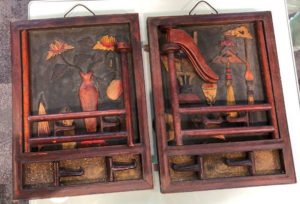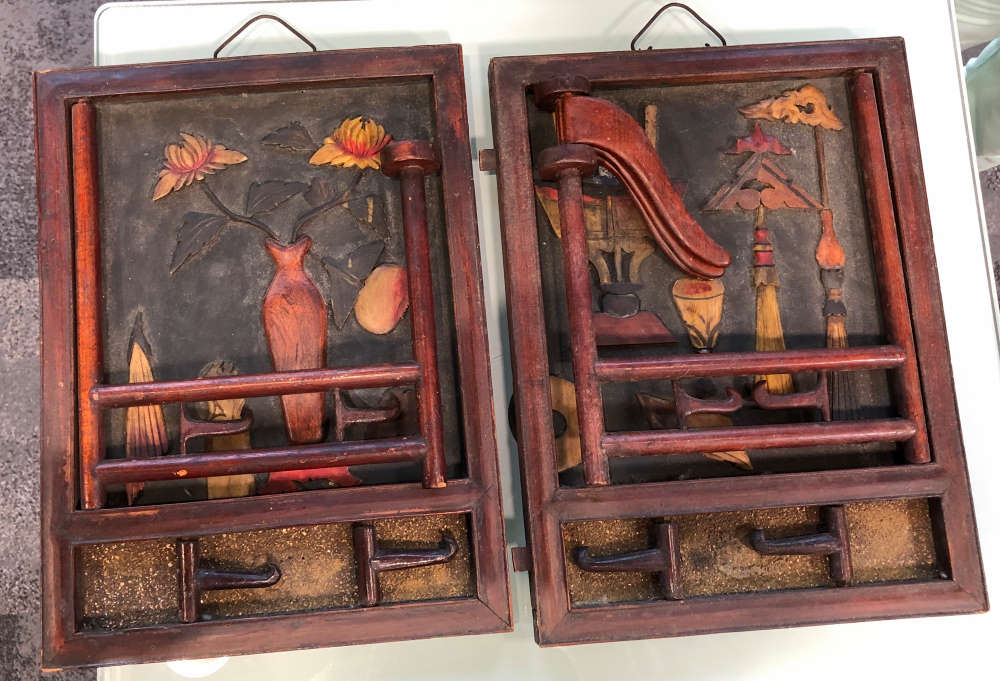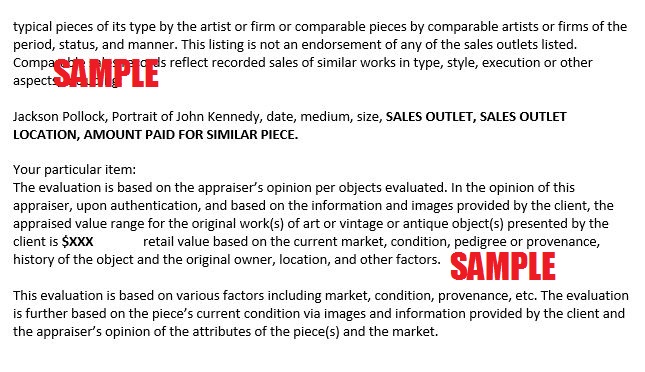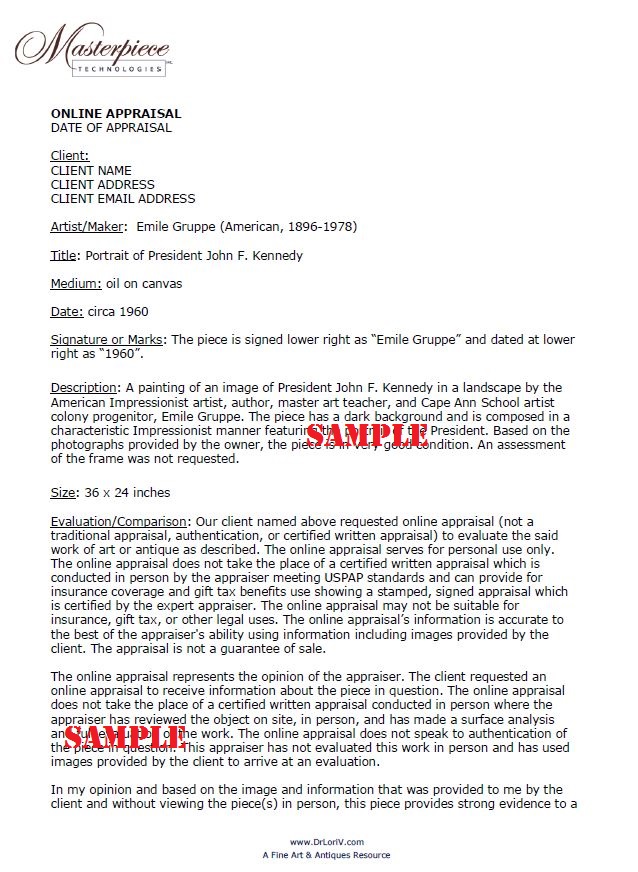
Many of you are making money buying and reselling objects at thrift stores. I know because I help you identify and value your finds at my event locations and when using my Priority Ask Dr. Lori subscription. It is a great way to supplement, or for many of my followers and fans, make a living! From years of appraising objects that originate from every source imaginable–major museums, elite private collectors, dumpsters, cast off corporate office items, grandma’s clean outs–the items that will bring you money are those that are quality objects and those that you know how to market well. There are a few things that any seasoned thrift store reseller knows. Here are some rules to thrift by:
1. Don’t Try to Do it All
Don’t try to know everything about every type of object when you are thrift store shopping. Try to focus on an area, theme, or type of object as you shop for resale. Sure, I know you are thinking… Dr. Lori knows about all different types of objects, why can’t I? It’s not that you can’t know about various types of art, antiques, and collectibles but in the interest of time and trying to resell objects that you bought low to sell high, I suggest you focus. Focus on a few specific areas when you thrift shop like ceramics or glass or painting/prints or jewelry. I know, it all depends on what is available at a thrift store on the day that you are shopping, but if you concentrate on a collecting category, theme, or material, you will find objects that you can purchase in most thrift stores and you can zero in on marketing them to make money on your thrift store flip. Read 3 Secrets to Thrift Store Shopping for more.
I have been known to reveal that the three most valuable antiques in the world of art and antiques are fine art, furniture and jewelry/precious metals. These categories of objects have stood that test of time which is why I suggest most people hold onto them or have them appraised before you sell them. When you are thrift store shopping and reselling, it is a good idea to become an expert in one or two areas so you can focus on those items and learn the markets for selling those items. It could be anything really… lamps, vintage leather accessories like pocketbooks and purses or sneakers. Learn to recognize the quality brands, structural differences, manufacturing consistencies, market strongholds, etc. for your particular category of objects. Don’t try to do it all and instead focus and find the money hiding in the thrift store. If your category is not in the thrift store, move onto another thrift store. Don’t waste time or money on something you don’t know.
2. Don’t Overclean
So, let’s jump ahead. Say you are in a thrift store and you see an object that you know is of good quality and has been overlooked by the myriad of other thrift store buyers and resellers. The object is in good shape but it is dirty, filthy even. You buy the item for a few bucks after negotiating with the seller–What? You thought I would miss an opportunity to remind you to always negotiate? Watch me offer thrift store negotiating tips.
Come on!–and you figure that you will get it home and clean it up. You know which products will do the best job cleaning a thrift store find–such as magic erasers, soft cotton cloths with mild dish soap, etc.–and you are psyched to get home, clean this object up, and start marketing it for sale online. Well, for some reason, your typical cleaning solutions do not solve the problem with this object. The piece is not getting clean, it seems that if you clean too hard, you will wear the surface off the piece. You try everything and then you decide if you go any further, you will run the risk of ruining the piece. So STOP. That’s right, stop right there. Don’t clean or attempt to clean it any more. Market it as is. I have seen people ruin 15,000 dollar colonial period portrait paintings by using a cleaning technique they read about from some so-called online expert, I’ve seen objects damaged by commercial cleaners, and I’ve seen valuables ruined by too much elbow grease, scrubbing, and abrasions from the wrong cleaning tool or pre-treated cloth. Many people are very satisfied with an antique that is somewhat dirty or visibly worn. If you can clean it up, that’s fine but if you find that you as running into trouble, then remember, some pieces are better off not oh so pristine and pure. Know when to stop cleaning.
3. Don’t Limit Your Market
All the time, I hear this from thrift store shoppers who just don’t want to put the time or effort into the marketing of their thrift store find. I hear complaints (yes, that’s what they are… complaints) like “I don’t want to sell on eBay, Craigslist, social media groups, etc. There must be better ways to attract good buyers.” Stop complaining, if you want to sell that thrift store find and cash in, you have to open yourself up to many different potential buyers and these buyers can be found in many different places–locally, globally, etc. Deciding for convenience that you want to omit some big markets for selling will just result in you adding that recent thrift store find to a shelf in your basement forever.
The thrift store hunters who want to resell that donated cookie jar, vintage Louis Vuitton duffle bag, vintage handbag or autographed baseball somewhere other than here is going to have a problem. These types of complainers will say things like “Oh, no one who lives here wants this object” or “I live in a small town and you can’t get that much money for that type of object in a place like this” and they show me that they don’t want to do the real work.
It is easy to buy something and then complain when you can’t sell it, but let me tell you, there are many buyers out there and I know that is true because those buyers are the same people who know that they need my appraisals. If you think people aren’t paying big bucks for old vinyl records, I should introduce you to the private collector in Kansas who has spent millions on his collection. If you think that thrift store stuff is not selling online then you should meet the thrift store regular who left a corporate job to buy thrift store items and resell them online making more than he did at his “regular” job. The world has changed. Valuable objects can be sold to buyers worldwide with the click of a mouse, the swipe of a screen. Don’t limit your market because if you do, you’ll really limit your options.
Those who really want to make money thrift store shopping use me as a resource. I save them time researching and identifying objects and showing the true values of objects. You don’t have time to shop to find the finds, research what you bought, identify the market for your thrift store find, clean or repair that object, market the object, weed out the buyers who are not going to follow through, connect with a real buyer, complete the transaction, pack, prepare, ship, and deliver the object. My online appraisal reports help sell your thrift store finds and show you the road to closing that sale.
Happy Thrifting.



